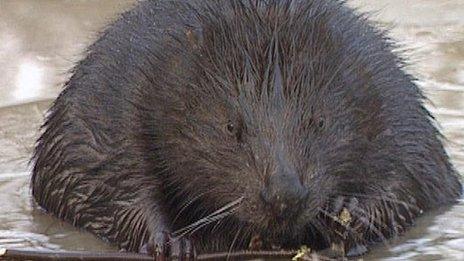New reports released on Knapdale Scottish Beaver Trial
- Published
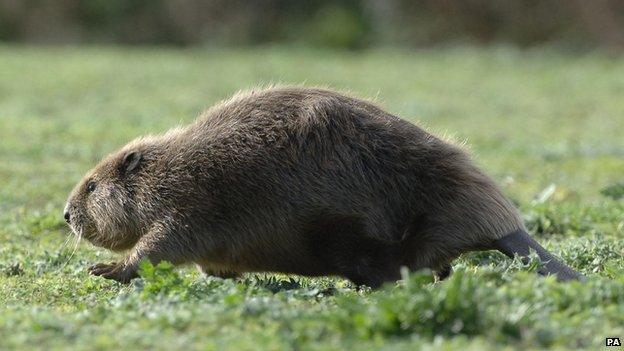
Beavers were once native to Scotland
Six new reports examining the Scottish Beaver Trial in Argyll have been published.
The studies will help the Scottish government in considering any future reintroductions of the animals.
The first Norwegian beavers were released in Knapdale in 2009 after six months of quarantine at the Highland Wildlife Park near Aviemore.
The reports cover the health and diet of the mammals and their impact on the landscape and local economy.
Researchers noted that the beavers changed the shape of woodland close to loch shores and increased the water level of one loch after building a dam on it.
The presence of the animals at Knapdale boosted visits to the area by "beaver tourists" and volunteers to the project, according to one of the reports.
The same research suggested the benefit to local businesses was "modest".
However, the report also said that shops and firms might be able to boost earnings and job opportunities if the beavers were allowed to stay on a permanent basis.

Mibbes aye, mibbes naw: Pros and cons of Argyll's beavers
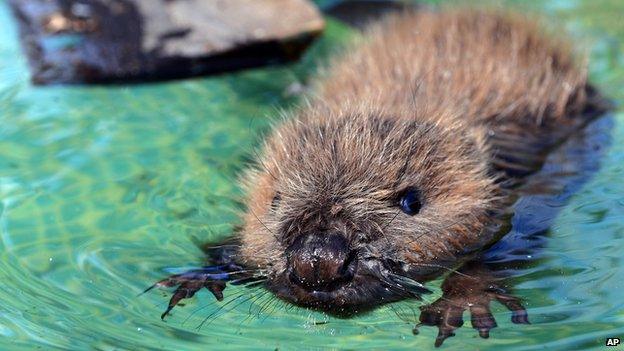
Researchers got a mixed response from local businesses about how the project was affecting them.
Some said anglers were staying away because of the beavers, while others told of visitors coming to the area in the hope of seeing the animals.
Between May 2008 and May 2014, more than 32,000 people were involved in various activities held by Scottish Beaver Trial staff.
The beavers were found to favour a certain size of tree close to loch shores. Researchers found new growth on the stumps left, except where deer had come in and eaten it.
Sixteen beavers were released between 2009 and 2010.
One beaver was removed from the trial because of poor body condition. Two beavers died shortly after release and two kits died.
Researchers said the body weights of the surviving adult beavers have stayed within the expected weight range for Norwegian beavers.

The Scottish government will make a decision on the future of beavers in Scotland next year.
The Scottish Beaver Trial is a partnership led by the Scottish Wildlife Trust and the Royal Zoological Society of Scotland. It is hosted at Knapdale by Forestry Commission Scotland.
The trial is the first formal reintroduction of a mammal ever to take place in the UK.
The cost of the project is expected to run to more than £2m.
Beavers were once native to Scotland but died out because of hunting and habitat loss.
Martin Gaywood, who leads the independent scientific monitoring of the trial for Scottish Natural Heritage, said it was essential that any species reintroduction project was properly managed and monitored.
He said: "The independent monitoring of the Scottish Beaver Trial has helped us understand how they behave in a Scottish environment.
"We'll be preparing a report for ministers on the trial, which will be submitted in May 2015.
"The Scottish government will then decide if beavers will be permanently reintroduced to Scotland."
Field operations manager for the Scottish Beaver Trial, Roisin Campbell-Palmer, said: "We welcome the process moving forward.
"The reports published by Scottish Natural Heritage highlight many of the benefits of this keystone species, such as increasing wetland habitat in the area, boosts to visitors and volunteering in the trial area and the beaver being utilised as an educational opportunity across Scotland."
- Published29 April 2014
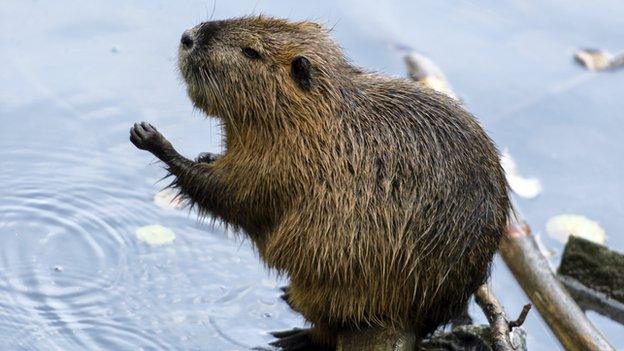
- Published17 July 2013
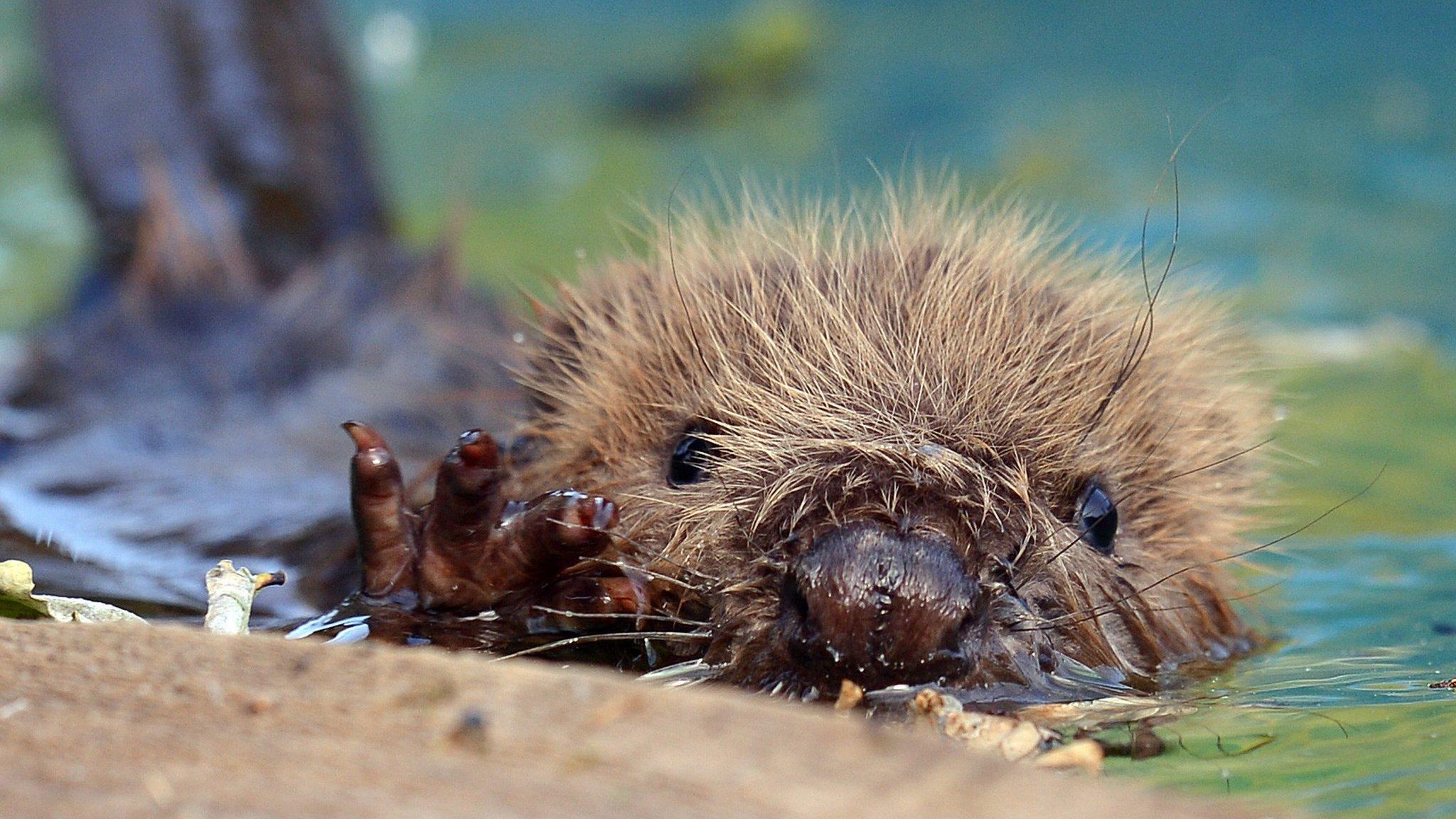
- Published27 March 2013
